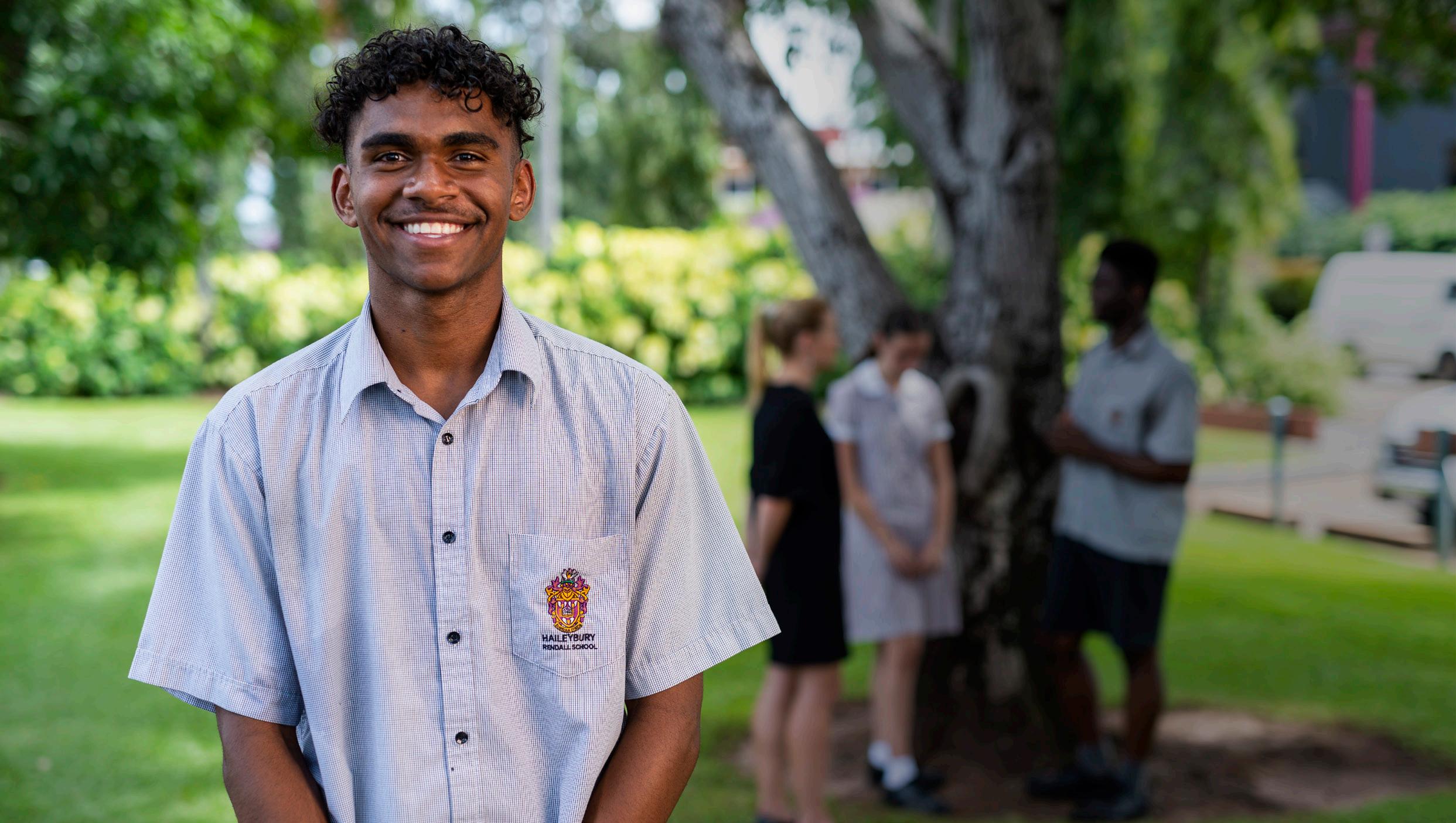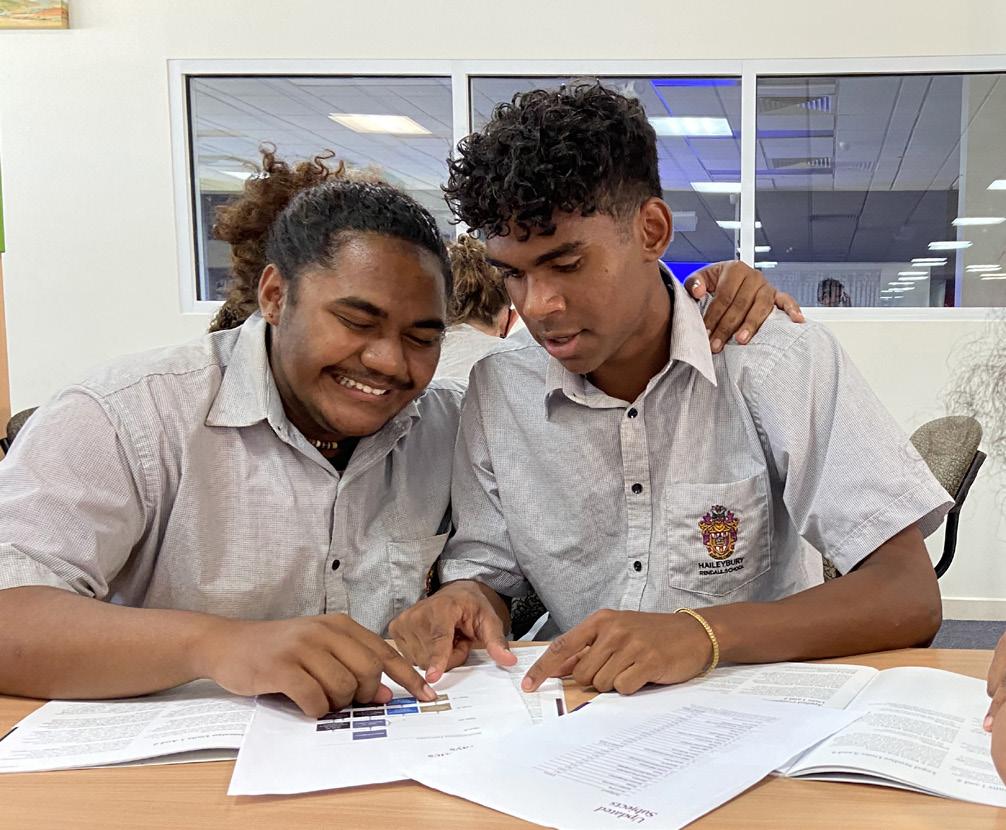
2 minute read
BOARDING
Leading the way

The concept of leadership is a widely debated and contentious field. Are leaders born or do they grow into the position? It is a hotly debated question.
Leadership is crucially important at Haileybury Rendall School. Developing leadership skills and processes in our students is vital and can lead to strong personal and professional success. We are very proud that we also push solid leadership lessons at our Boarding School.
“At Haileybury Rendall School, we run a diverse boarding operation with a large number of students from different backgrounds. Indeed, our Aboriginal and Torres Strait Islander boarders come from over 26 different community groups, each with different languages and cultural perspectives. The importance of hearing an articulated student voice from our boarders is of particular significance.”—Dennis Nowak, Head of Boarding School

Like many other boarding schools across Australia, the central figures of our student leadership body and representatives of our student voices are our Boarding Prefects and our formal Boarding Student Representative Council.
This group is made up of students across Years 9 to 12 and includes an equal number of boys and girls. This group meets regularly and provides us with insights, feedback and ideas on how to make improvements for our boarding students.
However, our strong belief at Haileybury Rendall School Boarding is that leadership is not merely about a few individuals expressing views on behalf of a larger student body. Our aim is to see all of our students as leaders in their own right and provide leadership development and opportunities for all of our boarders.
This sort of democratic and collective style of leadership is not only more representative. It also provides more learning opportunities for all students in our care and leads to a Boarding Program that is more effective at meeting its core outcomes— namely, engaged, happy and safe students.
A regular practice for us is creating ‘yarning circles’, where all students have input into student and staff Codes of Conduct, or ‘creeds’.
Another function of yarning circles is that they serve as a platform for students to share ideas for new initiatives. One such initiative was our Boarding Disco event, which occurred at the end of last term.
Students had direct input into what the event would look like, what they would eat, games to be played on the night, and even a student music playlist that the children could dance to (though staff did ensure that ‘the Nutbush’ made that playlist).
Ultimately, the primary aim of a collectivist approach to student leadership is to develop leadership capacity in all of our students. That is our goal.
When they finish their learning journeys at the School, students will be ready to lead with family, community and any professional fields they choose to pursue. We believe that this is a worthwhile endeavour for all and will provide our students with a very promising future.









